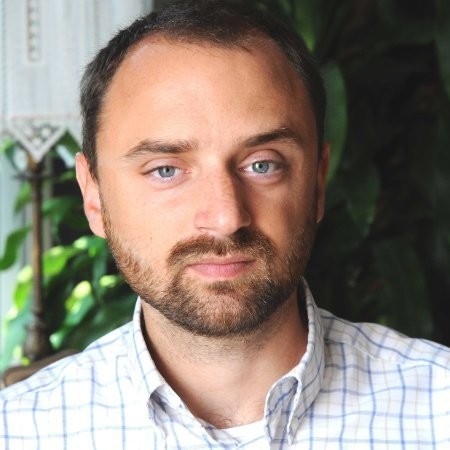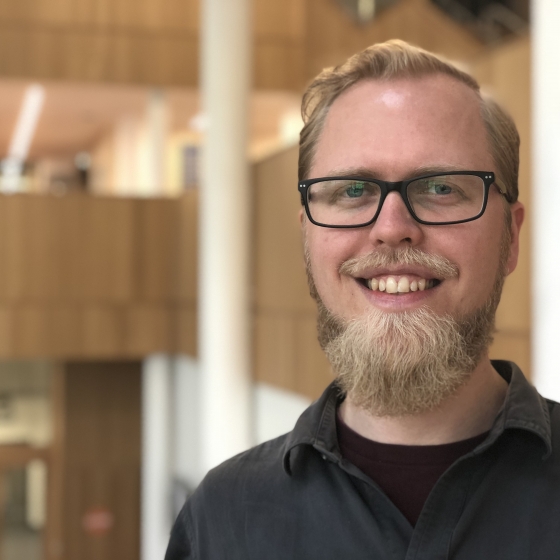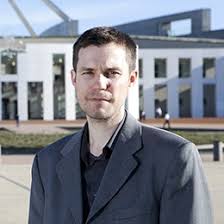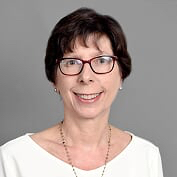Digital Participation speaker bios
 Dan Andrew has 15 years experience as a media planner and buyer, working across some of Australia’s largest advertising clients and campaigns. He is currently a lecturer in Advertising and Communications at the University of Canberra and a PhD candidate exploring how Programmatic Advertising is changing the interdependent relationship between advertisers, media providers and audiences.
Dan Andrew has 15 years experience as a media planner and buyer, working across some of Australia’s largest advertising clients and campaigns. He is currently a lecturer in Advertising and Communications at the University of Canberra and a PhD candidate exploring how Programmatic Advertising is changing the interdependent relationship between advertisers, media providers and audiences.
 Francesco Bailo obtained his PhD from the Department of Government and International Relations at the University of Sydney in 2017 where is now a Postdoctoral Fellow in Digital Media Methods in the Department of Media and Communications. His PhD thesis investigates the impacts of online talk and social-networking sites on political participation and organisations. He is interested in digital methods and particularly in the applications of network analysis and quantitative text analysis.
Francesco Bailo obtained his PhD from the Department of Government and International Relations at the University of Sydney in 2017 where is now a Postdoctoral Fellow in Digital Media Methods in the Department of Media and Communications. His PhD thesis investigates the impacts of online talk and social-networking sites on political participation and organisations. He is interested in digital methods and particularly in the applications of network analysis and quantitative text analysis.
 Titus Chen is an Associate Professor of Political Science at the National Sun Yat-sen University, Kaohsiung, Taiwan. He earned his doctoral degree of Political Science from the University of California, Irvine, in 2008. His research interests include Constructivist International Relations Theory, Human rights and international humanitarianism, International development, International relations of East Asia and International history.
Titus Chen is an Associate Professor of Political Science at the National Sun Yat-sen University, Kaohsiung, Taiwan. He earned his doctoral degree of Political Science from the University of California, Irvine, in 2008. His research interests include Constructivist International Relations Theory, Human rights and international humanitarianism, International development, International relations of East Asia and International history.
 Nikolai Gad is a RCUK (Research Council UK) funded PhD candidate at Newcastle University, where he studies the role of digital technologies in emerging European political parties, that claim to re-invent how to “do politics” from the bottom up. He is based at the Centre for Doctoral Training in Digital Civics based at the university’s Open Lab, from where he also earned a Masters degree.
Nikolai Gad is a RCUK (Research Council UK) funded PhD candidate at Newcastle University, where he studies the role of digital technologies in emerging European political parties, that claim to re-invent how to “do politics” from the bottom up. He is based at the Centre for Doctoral Training in Digital Civics based at the university’s Open Lab, from where he also earned a Masters degree.
 Michael J Jensen is a Senior Research Fellow at the Institute for Governance and Policy Analysis. He has a background in political communication and has published books with Cambridge University Press and Palgrave concerning online political behaviour. His work concerns the use of digital communication technologies in the development of new forms of political organization within political campaigning and protest movements.
Michael J Jensen is a Senior Research Fellow at the Institute for Governance and Policy Analysis. He has a background in political communication and has published books with Cambridge University Press and Palgrave concerning online political behaviour. His work concerns the use of digital communication technologies in the development of new forms of political organization within political campaigning and protest movements.
 John Keane is Professor of Politics at the University of Sydney and at the Wissenschaftszentrum Berlin (WZB), and Distinguished Professor at Peking University. He is renowned globally for his creative thinking about democracy. He is the Director and co-founder of the Sydney Democracy Network. Among his best-known books are the best-selling The Media and Democracy (1990; reprinted more than a dozen times, translated into nearly 30 languages), Tom Paine: A political life (1995), Violence and Democracy (2004), Democracy and Media Decadence (2013) and the highly acclaimed full-scale history of democracy, The Life and Death of Democracy (2009; translated into Spanish, Chinese, Korean, Japanese , Portuguese and Brazilian; Arabic forthcoming). His most recent books are A Short History of the Future of Elections (2016) and When Trees Fall, Monkeys Scatter: rethinking democracy in China (2017). His Power and Humility: the Future of Monitory Democracy is forthcoming.
John Keane is Professor of Politics at the University of Sydney and at the Wissenschaftszentrum Berlin (WZB), and Distinguished Professor at Peking University. He is renowned globally for his creative thinking about democracy. He is the Director and co-founder of the Sydney Democracy Network. Among his best-known books are the best-selling The Media and Democracy (1990; reprinted more than a dozen times, translated into nearly 30 languages), Tom Paine: A political life (1995), Violence and Democracy (2004), Democracy and Media Decadence (2013) and the highly acclaimed full-scale history of democracy, The Life and Death of Democracy (2009; translated into Spanish, Chinese, Korean, Japanese , Portuguese and Brazilian; Arabic forthcoming). His most recent books are A Short History of the Future of Elections (2016) and When Trees Fall, Monkeys Scatter: rethinking democracy in China (2017). His Power and Humility: the Future of Monitory Democracy is forthcoming.
 Zorana Kostić is a postgraduate research student in Media and Communication at University of Canberra. She has MD in Journalism from University of Wollongong and BA degree from the Keio University, Tokyo, Japan. She is the member of the Revisionary Interpretation Public Enterprises (RIPE) global research network since 2012. She worked as a public broadcaster for the Japanese Public Corporation and speaks and writes fluent Japanese. She has also extensive experience in teaching journalism at University of Wollongong and University of Sydney.
Zorana Kostić is a postgraduate research student in Media and Communication at University of Canberra. She has MD in Journalism from University of Wollongong and BA degree from the Keio University, Tokyo, Japan. She is the member of the Revisionary Interpretation Public Enterprises (RIPE) global research network since 2012. She worked as a public broadcaster for the Japanese Public Corporation and speaks and writes fluent Japanese. She has also extensive experience in teaching journalism at University of Wollongong and University of Sydney.
 Nina Lewis is a Research Fellow in the Faculty of Information Technology at Monash University, working as primary researcher on the Imagined Archives project, and in conjunction with the ARC funded Rights in Records by Design project. Heavily interdisciplinary in approach, these projects draw on participatory research methods to produce new knowledge of recordkeeping practices and their compound effects, on a lifelong measure. Before joining the research team at Monash University, Nina was Program Manager for the Find and Connect website, a data portal that aims to better the standard of information justice available to survivors of the Forgotten Australians generations; the estimated 500 000 children who were placed in institutional “care” in Australia during the 20th Century.
Nina Lewis is a Research Fellow in the Faculty of Information Technology at Monash University, working as primary researcher on the Imagined Archives project, and in conjunction with the ARC funded Rights in Records by Design project. Heavily interdisciplinary in approach, these projects draw on participatory research methods to produce new knowledge of recordkeeping practices and their compound effects, on a lifelong measure. Before joining the research team at Monash University, Nina was Program Manager for the Find and Connect website, a data portal that aims to better the standard of information justice available to survivors of the Forgotten Australians generations; the estimated 500 000 children who were placed in institutional “care” in Australia during the 20th Century.
 Deborah Lupton is Centenary Research Professor in the News & Media Research Centre, Faculty of Arts & Design, University of Canberra. She is a Fellow of the Academy of the Social Sciences in Australia and the co-leader of the Digital Data & Society Consortium. Her latest books are Digital Sociology (Routledge, 2015), The Quantified Self (Polity, 2016), Digital Health (Routledge, 2017) and Fat, 2nd edition (Routledge, 2018), as well as the edited volumes Digitised Health, Medicine and Risk (Routledge, 2016), The Digital Academic (Routledge, 2017, co-edited with Inger Mewburn and Pat Thomson) and Self-Tracking, Health and Medicine (2017). Her current research interests all involve aspects of digital sociology: digital health, digital data cultures, self-tracking practices, digital food cultures, digitised academia, and the digital surveillance of children and young people.
Deborah Lupton is Centenary Research Professor in the News & Media Research Centre, Faculty of Arts & Design, University of Canberra. She is a Fellow of the Academy of the Social Sciences in Australia and the co-leader of the Digital Data & Society Consortium. Her latest books are Digital Sociology (Routledge, 2015), The Quantified Self (Polity, 2016), Digital Health (Routledge, 2017) and Fat, 2nd edition (Routledge, 2018), as well as the edited volumes Digitised Health, Medicine and Risk (Routledge, 2016), The Digital Academic (Routledge, 2017, co-edited with Inger Mewburn and Pat Thomson) and Self-Tracking, Health and Medicine (2017). Her current research interests all involve aspects of digital sociology: digital health, digital data cultures, self-tracking practices, digital food cultures, digitised academia, and the digital surveillance of children and young people.
 Karen Mossberger is a Professor in the School of Public Affairs at Arizona State University. Her most recent book is Digital Cities: The Internet and the Geography of Opportunity (Oxford University Press 2013, with C. Tolbert and W. Franko), and earlier work addresses the impacts of technology use (Digital Citizenship: The Internet, Society and Participation) and the need for online skills, including information literacy (Virtual Inequality: Beyond the Digital Divide). Other projects include a repository for broadband data (in collaboration with the University of Iowa) and the evaluation of the Smart Communities Program, a digital inclusion initiative in nine Chicago neighborhoods. She has served as president of the American Political Science Association's Urban Politics section and Information Technology and Politics section, is the current chair for the International Political Science Association’s RC10 on Electronic Democracy, and was elected a fellow in the National Academy of Public Administration in 2016.
Karen Mossberger is a Professor in the School of Public Affairs at Arizona State University. Her most recent book is Digital Cities: The Internet and the Geography of Opportunity (Oxford University Press 2013, with C. Tolbert and W. Franko), and earlier work addresses the impacts of technology use (Digital Citizenship: The Internet, Society and Participation) and the need for online skills, including information literacy (Virtual Inequality: Beyond the Digital Divide). Other projects include a repository for broadband data (in collaboration with the University of Iowa) and the evaluation of the Smart Communities Program, a digital inclusion initiative in nine Chicago neighborhoods. She has served as president of the American Political Science Association's Urban Politics section and Information Technology and Politics section, is the current chair for the International Political Science Association’s RC10 on Electronic Democracy, and was elected a fellow in the National Academy of Public Administration in 2016.
 Tom Sear is a PhD student in Cyber Security at UNSW Canberra at The Australian Defence Force Academy. His PhD explores cyber temporalities and the warfare information space (notably interpersonal and social media-based communication) over the last century. It has a particular focus on the convergence and reflexivity between the memory of nodal conflicts from the twentieth century, contemporary war media ecologies and gaming within planetary scale computation. His expertise also intersects methodologically with cyber security. His PhD considers the capacity and methodological impact of new tools for Information War analysis.
Tom Sear is a PhD student in Cyber Security at UNSW Canberra at The Australian Defence Force Academy. His PhD explores cyber temporalities and the warfare information space (notably interpersonal and social media-based communication) over the last century. It has a particular focus on the convergence and reflexivity between the memory of nodal conflicts from the twentieth century, contemporary war media ecologies and gaming within planetary scale computation. His expertise also intersects methodologically with cyber security. His PhD considers the capacity and methodological impact of new tools for Information War analysis.
 Eli Skogerbø is Professor and Co-Director of POLKOM - Centre for the study of Political Communication, Department of Media and Communication, University of Oslo. In her career, Skogerbø has worked with issues of digitalization, media and democracy thoroughout her career, from different perspectives; media and communication policy, local democracy and ICT; indigenous, Sami, media, and increasingly, political communication and the impact on social media. She has published widely, (approx 100 publications) in Nordic languages as well as in English, and has written and co-edited several books, among them The Routledge Companion to Social Media and Politcs (2016).
Eli Skogerbø is Professor and Co-Director of POLKOM - Centre for the study of Political Communication, Department of Media and Communication, University of Oslo. In her career, Skogerbø has worked with issues of digitalization, media and democracy thoroughout her career, from different perspectives; media and communication policy, local democracy and ICT; indigenous, Sami, media, and increasingly, political communication and the impact on social media. She has published widely, (approx 100 publications) in Nordic languages as well as in English, and has written and co-edited several books, among them The Routledge Companion to Social Media and Politcs (2016).
 Temple Uwalaka recently completed his PhD at the News and Media Research Centre, University of Canberra, Australia. His research interests include the interrogation of how online and mobile media are used to influence political change. He can be contacted at temple.uwalaka@canberra.edu.au.
Temple Uwalaka recently completed his PhD at the News and Media Research Centre, University of Canberra, Australia. His research interests include the interrogation of how online and mobile media are used to influence political change. He can be contacted at temple.uwalaka@canberra.edu.au.

